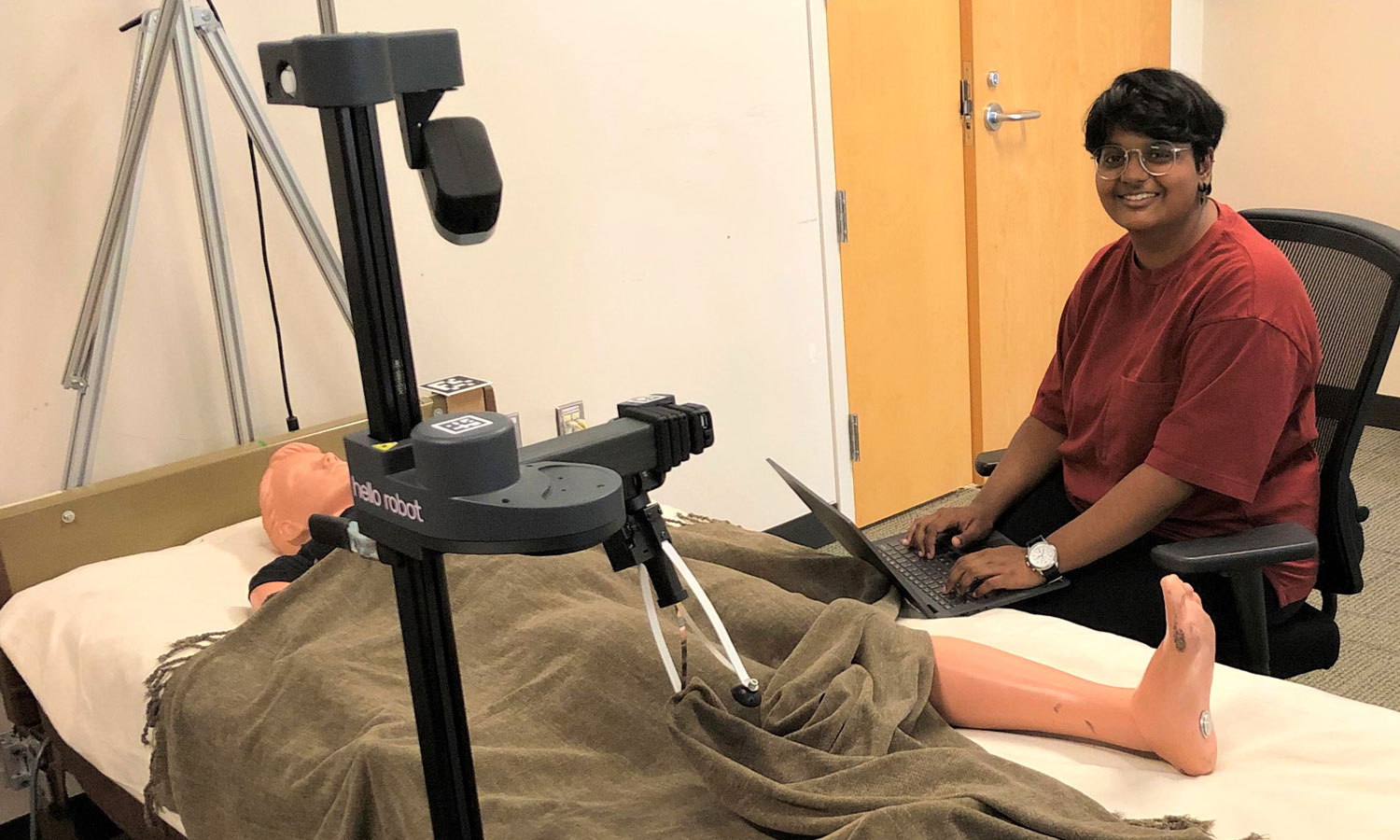When Kavya Puthuveetil watched hospital caregivers treat her mother’s cancer, she knew she wanted to be part of improving health care delivery for others. She believed the combination of both her passions - robotics and biomedical engineering - could lead to solutions that supplement thinly stretched health care workers while also reducing medical errors.
Puthuveetil, now a senior biomedical engineering student, has received a five-year fellowship through the National Science Foundation (NSF) Graduate Research Fellowship Program (GRFP), which she will use to pursue a Ph.D. in robotics at the Robotics Institute of Carnegie Mellon University. This prestigious fellowship provides tuition and a stipend for up to three years and is awarded to outstanding graduate students who are pursuing research-based master’s and doctoral degrees at accredited U.S. institutions. Puthuveetil is now the 11th student from the VCU College of Engineering to earn this honor.
As early as fifth grade, Puthuveetil began envisioning how robots could make positive contributions to society. Her dream continued to develop when she joined her high school’s FIRST Robotics Competition team, The Mech Tech Dragons, and while working in the lab of Christina Tang, Ph.D as a junior in high school. As a high school senior, she continued her work with Dr. Tang through the Dean’s Early Research Initiative and, in her first year at VCU, she gained further research experience in the lab of Dean Kruisienski, Ph.D. She credits this continuity of experience for helping elevate her GRFP application to success. Her passion of using robotics to improve health care was solidified after a summer undergraduate research experience at Georgia Tech, where she worked with Charlie Kemp, Ph.D and Zackory Erickson, Ph.D.
“With the shortage of skilled health care workers and the high incidence of [medical] errors, I think there’s really [an] opportunity for robotics to help alleviate some of those problems,” she said. Puthuveetil wants to focus specifically on how robots can augment staff stretched too thinly as opposed to replacing staff.
When nurses administering her mother’s chemotherapy heard of her career aspirations, many were immediately apprehensive of the idea that robots could replace them and take their jobs as caregivers. “This is a very good signal to us developing these systems that we should be very careful how we go about it,” she said.
She described a “bleak” scenario of a patient receiving chemotherapy with a robot at their side taking vitals, a picture completely devoid of the human connection she believes is so important to maintain.
“I believe I have an opportunity to set the tone of how we think about how robots get deployed in healthcare. Maybe we could mitigate some of these adverse impacts.”
Puthuveetil thanked her research advisors for preparing her for this next step, especially Tang and Krusienski. “Something I’ve always been grateful for is that I’ve had this level of trust put in me from my advisors that would generally only be reserved for graduate students,” she said. “When people took chances on me, that really changed my life.”
